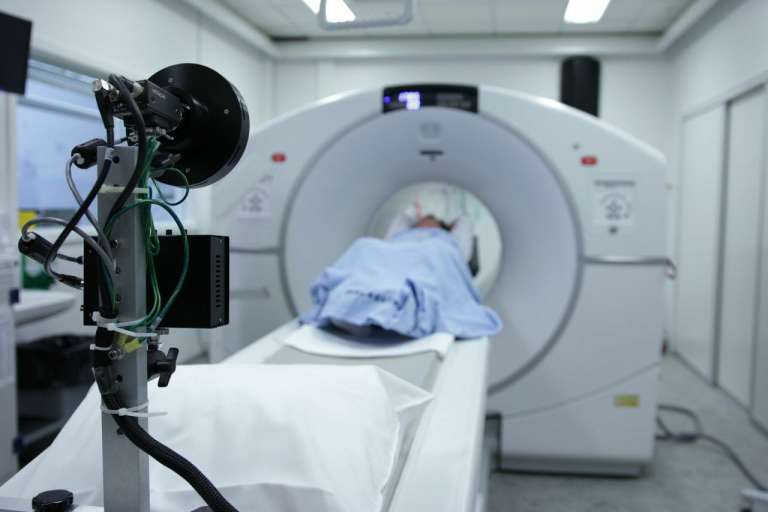Last week Donna Ockenden shared the initial investigation report into what is possibly the biggest scandal the NHS has ever seen. Ockenden chairs the independent review of maternity care at Shrewsbury and Telford Hospital NHS Trust. The report says poor care caused mothers and babies harm and the trust missed many opportunities to learn from their mistakes.
Why was an independent review into maternity care at Shrewsbury and Telford Hospital needed?
The previous Secretary of State called for the investigation in 2017, following concerns about the poor maternity care at Shrewsbury and Telford Hospital. It has since grown considerably and is now investigating 1,862 family’s care. Due to the sheer scale of the investigation they published the initial report following investigations into 250 cases to outline immediate and urgent recommendations for improvements in maternity care at Shrewsbury and Telford Hospital NHS Trust. Although the initial report only covers 250 cases, they have spoken to 800 more families which has guided their findings in this report.
The bulk of the incidences span the last two decades (between 2000 and 2019). However, they will also investigate some pre-2000 cases if they can locate the appropriate medical records. It is difficult to believe that problems within a maternity unit could persist over such an expanse of time. Some may say that it has only come to light thanks to a few persistent families. In fact, Ockenden praises the hard work of the parents Rhiannon Davies, Richard Stanton, Kayleigh and Colin Griffiths. They insisted on an independent review after losing their daughters (Kate Stanton Davies – 2009 and Pippa Griffiths – 2016).
Why did the maternity unit at Shrewsbury and Telford not learn from their mistakes?
We have recently shared our concerns that the NHS might not have the correct culture to learn from their mistakes. Ockenden’s report outlines a number of areas which have led to serious harm to mothers and babies; missed opportunities to learn from mistakes being an overarching one.
Interestingly, they reviewed neonatal care positively at Shrewsbury and Telford maternity. They reported that consultant neonatologists were present on wards and heavily involved in patient care. Advanced Neonatal Nurse Practitioners (ANNPs) also supported this level of care. This led to satisfactory or good care and very high-quality communication with families. Unfortunately this was the only positive area the report called out.
Executive Leadership turnover
Ockenden’s report points to failings from the top down in all other areas of maternity care at Shrewbury and Telford Hospital NHS Trust. Starting with the executive leadership. There have been 10 Chief Executive Officers at the Trust since 2000, eight of those have been between now and 2010. This turnover means there was a lack of ‘organisational memory’. New leadership teams pointed to legacy issues or problems in the past, instead of tackling them. The trust demonstrated this when sending some of the data over labelled ‘The Legacy’ cohort.
Care Quality Commission Reports
Ordinarily the Care Quality Commission (CQC) reports any drop in standards of care. However, the reports vary considerably in the review period. In 2015 the CQC gave a ‘good’ rating, but then ‘inadequate’ in 2018 and 2020.
Ockenden’s initial report findings
Lack of understanding and compassion
Unfortunately, the report called out one of the easiest thing to get right as a major flaw. Families told the review that they felt very little compassion or empathy from their healthcare providers. The trust often ignored or dismissed their concerns and in some cases blamed the mothers for their tragic loss.
This also extended to parents after the loss of their baby. The time they were offered with their baby was limited, and they rarely received sufficient follow up care.
Healthcare providers failed to give families all the necessary information when making decisions about where to give birth. This meant that families did not understand all the potential risks and transfer times for escalation of care.
Clinical care and competency
The report questioned clinical care and competency. Highlighting poor decision making when managing complex cases and subsequently failing to escalate treatment when necessary, leading to delays in care.
Within a midwife setting, they rely on Intermittent Auscultation (IA) to monitor the fetal heart rate. However, the review found consistent failures in conducting and interpreting this monitoring, ultimately leading to the wrong treatment decisions or failing to escalate care.
They also identified failures to accurately record the Maternal Early Warning Score (MEWS) which might have prompted escalation in care.
A drug called oxytocin can be used to increase the frequency, strength and length of contractions. It must be used in moderation after careful consideration of all the risks, particularly where there are fetal heart rate complications, as it can lead to further complications during labour or caesarean section. This trust seemed to ignore these complications and then failed to learn from their mistakes.
Traumatic births
Shrewsbury and Telford Hospital NHS Trust were proud of their low caesarean section birth rate. Throughout the review period, the caesarean section rates in the UK increased, however they remained stable in Shrewbury and Telford. They saw this as a sign of their good maternity care. However, they failed to consider the mortality rates or number of traumatic births. Many families said that the trust were reluctant to abandon vaginal delivery, meaning that they were refused caesarean sections. This often led to forceful forceps deliveries with traumatic and tragic results to mother and baby.
According to the Mothers and Babies – Reducing Risk through Audits and Confidential Enquiries (MBRRACE) report; the 2013-2016 perinatal mortality rates at Shrewsbury and Telford were up to or more than 10% higher than comparable UK NHS Trust. There were 13 maternal deaths between 2000 and 2019, with another two prior to 2000.
Lack of collaboration in care plans and investigations
The report highlights a lack of team planning for women with pre-existing conditions or risk factors. They may have identified mothers as high risk and would refer them to a lead clinician, but were subsequently seen by junior doctors. The lack of joint clinics meant there was not enough collaborative planning into the treatment of high-risk mothers.
They also saw this lack of collaboration in investigations of serious incidents. Ultimately calling out the rigour and quality of investigations. However, the trust often excluded Consultant Anaesthetists from the investigations following a significant incident. This meant that participation in investigations were limited, as were opportunities to learn from any mistakes.
Recommendations and urgent actions
Shrewsbury and Telford Maternity
The review published this initial report to identify urgent actions whilst the investigations continue. The review could not risk further mother and baby’s lives by delaying the necessary improvements any longer.
Ockenden noted that the Shrewsbury and Telford Hospital NHS Trust have received recommendations for improvements prior to and during this review period. Unfortunately, they have not implemented them or they have been implemented poorly. This lack of action has led to further harm to mothers and babies. The review were therefore forced to recommend some urgent actions for this trust. However, they are all quite simple recommendations that you might expect to be in place already. Ockenden points out that they are not brand new or ground-breaking.
National recommendations
This review, however, has raised concerns about the wider maternity care in the UK, so they are therefore recommending a number of measures for all maternity trusts.
- Neighbouring Trusts must work collaboratively to ensure that local investigations into Serious incidents (SIs) have regional and Local Maternity System (LMS) oversight.
- Maternity Services must ensure that women and their families are listened to and heard.
- Staff who work together, must train together.
- Robust pathways for managing women with complex pregnancies.
- Women undergo a risk assessment at each contact throughout the pregnancy pathway.
- Appoint a Lead Midwife and Lead Obstetrician both with demonstrated expertise to focus on and champion best practice in fetal monitoring.
- Women have ready access to accurate information to enable their informed choice of intended place and mode of birth.
These recommendations are both reassuring and concerning. As the report points out these are not innovative measures. There shouldn’t be any resistance to these changes and should therefore be easy to implement. However, what is concerning, is that they need to be called out in this manner. This review is looking at a monumental number of cases at a single NHS Trust. How confident can we be that these problems are not occurring in more NHS Trusts?
Did you receive maternity care at Shrewsbury and Telford Hospital?
Ockenden’s report is quite a harrowing read, it shares a lot of traumatic stories from some of the families affected. Bringing to life the impact that poor medical care can have on people.
We support many families after a traumatic birth or poor maternity care, sometimes with tragic consequences. The scale of this review shows it really can happen to anyone. Midwives and Obstetricians are only human, they can make mistakes. Learning from those mistakes is crucial to preventing further harm to others.
If, like the families in this review, you don’t feel like your voice is being heard, Pryers may be able to help. Speak to our team on 1904556600 to find out for free if you can claim compensation for a birth injury on a no win no fee basis.





